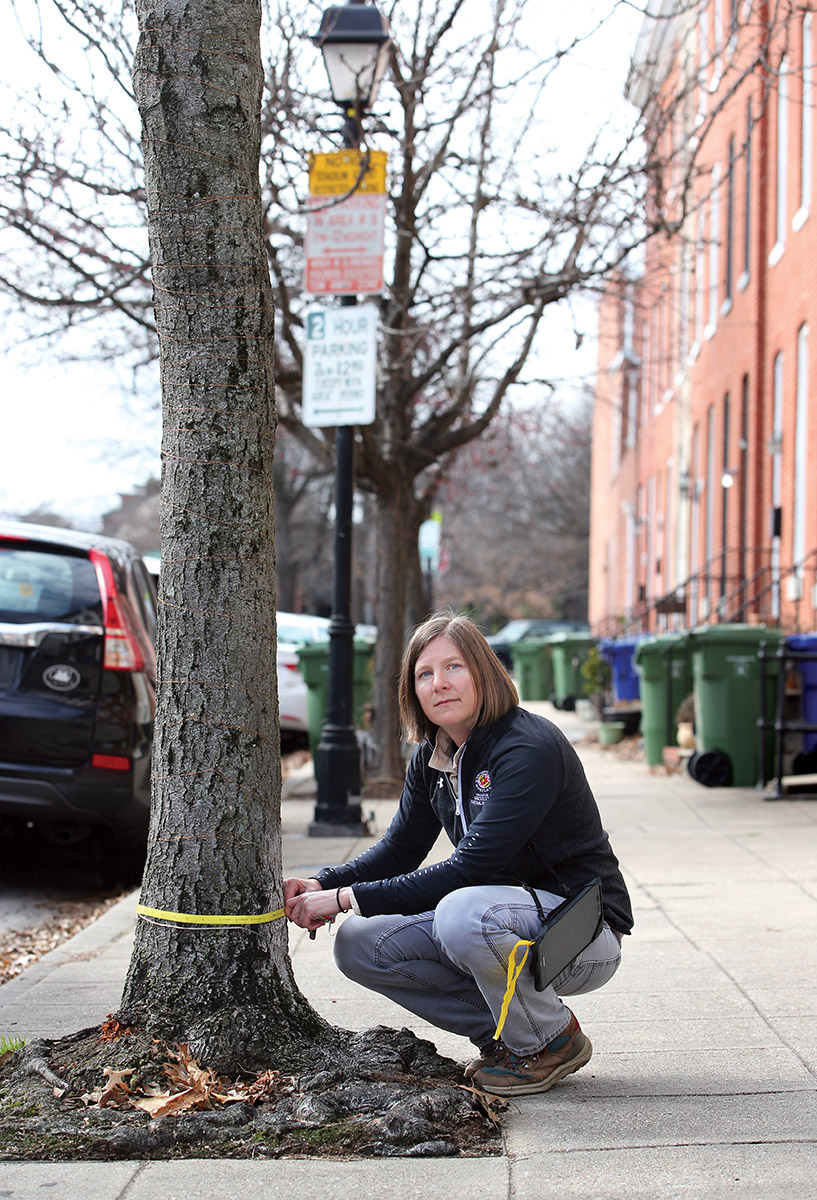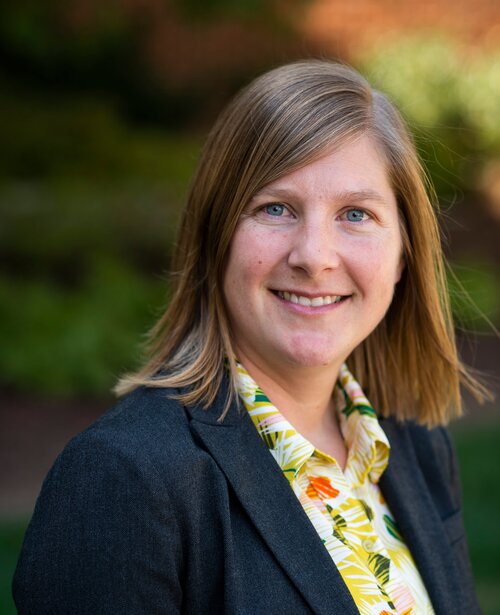Grand Challenges: Advancing Environmental Justice By Evaluating Climate-Ready Urban Street Trees In Historically Redlined Neighborhoods
Grant Type: Individual Project Grant
Topics: Climate Change and Social Justice
College Represented: CMNS
Baltimore Gets Shadier with New Tree Plantings (WYPR)
November 15, 2024
Grand Challenges Project Supports Urban Tree Growth and Environmental Justice in Baltimore
September 30, 2024
Harvesting Hope from the Trees
April 2023
Summary: City canopy trees cool urban heat islands, control stormwater, and promote the health and well-being of residents, all while supporting biodiversity. As a result, many cities, including Baltimore, MD, are increasing urban tree planting campaigns to reach the 30-40% canopy cover needed for residents to feel full benefits. However, planners and planters often do not know which species of trees will survive to provide benefits as large trees, especially with projections of even higher temperatures to come due to climate change. Further, current tree cover in cities is not equitably distributed, leaving some neighborhoods (often those previously redlined) with smaller and less diverse trees and thus hotter and more challenging growing conditions for newly planted trees to grow. These areas may require different species or planting plans than cooler areas of the city. This project addresses this challenge by revisiting recently planted cohorts of trees in Baltimore, MD, across multiple neighborhoods. By measuring 5-year growth, survival, condition, and insect populations, this project is providing solutions by generating data and products identifying a diverse group of trees that are climate and urban-ready and likely to perform best in the heat islands that characterize previously redlined neighborhoods. This work is timely, as the state of Maryland recently committed to planting 500,000 urban trees in previously redlined, low-income, or high-unemployment urban areas through the Urban Tree Grant Program by 2031. Through this project, more cities can become climate change-resilient by enabling targeted, effective tree species choices, using an approach that directly acknowledges, measures, and creates solutions to overcome the legacies and feedbacks of environmental injustice built into U.S. cities.
City canopy trees cool urban heat islands, control stormwater, and promote the health and well-being of residents, all while supporting biodiversity. As a result, many cities, including Baltimore, MD, are increasing urban tree planting campaigns to reach the 30-40% canopy cover needed for residents to feel full benefits. However, planners and planters often do not know which species of trees will survive to provide benefits as large trees, especially with projections of even higher temperatures to come due to climate change. Further, current tree cover in cities is not equitably distributed, leaving some neighborhoods (often those previously redlined) with smaller and less diverse trees and thus hotter and more challenging growing conditions for newly planted trees to grow. These areas may require different species or planting plans than cooler areas of the city. This project addresses this challenge by revisiting recently planted cohorts of trees in Baltimore, MD, across multiple neighborhoods. By measuring 5-year growth, survival, condition, and insect populations, this project is providing solutions by generating data and products identifying a diverse group of trees that are climate and urban-ready and likely to perform best in the heat islands that characterize previously redlined neighborhoods. This work is timely, as the state of Maryland recently committed to planting 500,000 urban trees in previously redlined, low-income, or high-unemployment urban areas through the Urban Tree Grant Program by 2031. Through this project, more cities can become climate change-resilient by enabling targeted, effective tree species choices, using an approach that directly acknowledges, measures, and creates solutions to overcome the legacies and feedbacks of environmental injustice built into U.S. cities.

PI: Karin Burghardt (CMNS/AGNR),
Assistant Professor, Entomology

